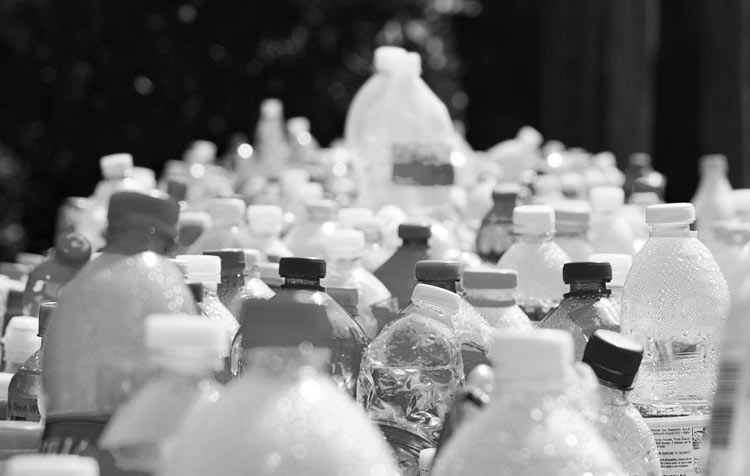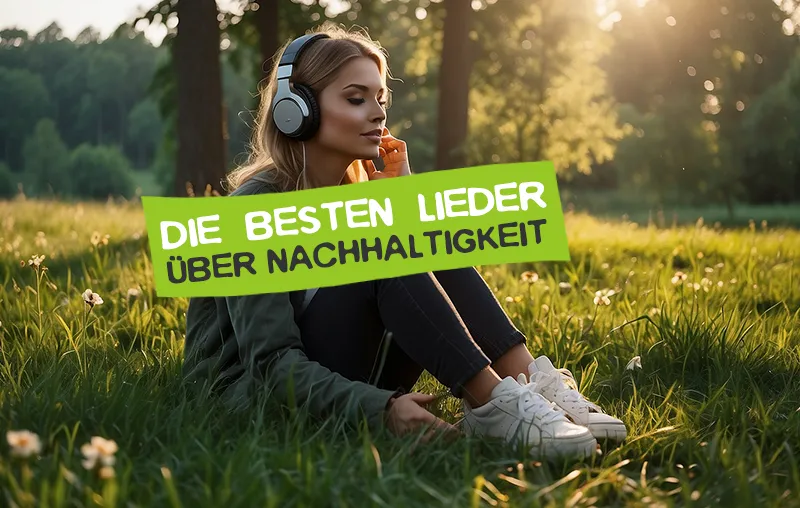Can you be more effective through targeted Say No & Refuse cause less plastic waste? But to 100%! In everyday life, we repeatedly come across situations in which we say yes out of convenience. Often this is the wrong decision. If, for example, you are offered a flyer on the street in the near future, then simply say no consciously. In this article, I would like to give you a little insight into the effect of saying no on the psyche and the environment.
Here is another short Table of contents for you:
- Rejection is in the nature of man
- Why we say YES rather than NO
- Reject - Zero Waste
- Advantages of saying no
- Learn to say no
- Conclusion
Rejection is in the nature of man
It is in our nature to reject things. Especially when it comes to new things. With my Environmental project As a young entrepreneur, I always feel a bit of rejection as well as unbelievable support. But if you realize that it's in our nature, you can easily ignore it or just look at it positively. Would you like an example of rejection in the course of a project? When you start a business, people often don't take you that seriously. Teasing and cynicism are the order of the day. After the project is off to a successful start, there is envy and nagging. Those who get through this phase get respect and recognition. That's just our nature. But there is a problem: Especially when it comes to conscious consumption or reducing one's personal plastic waste, our urge to reject out of convenience is unfortunately often not as strong. Now you can find out why we tend to say yes.
Why we say YES rather than NO
However, it is not only in our nature to reject new things. There are some reasons why we tend to say yes. All of these reasons have to do with an inner fear that we need to be aware of in order to make saying no easier. Fear...
- ... from rejection (primal instinct to be liked).
- ... not being important (desire to be needed)
- ... to be alone (in case of rejection, one tends to expect to lose contact)
- ... to miss something (For example, with invitations it is difficult to set priorities)
- ... before a conflict (Since experience shows that disputes are the result).
- ... to be labeled as an egoist (if we don't give money to a beggar)
Those who are aware of these inner fears basically have no problems saying no and rejecting things. This applies to all areas of life and is an important insight in personality development.
Decline and say no for Zero Waste
To refuse is one of the most important laws of the Zero Waste Lifestyle im Kampf gegen deinen persönlichen Plastikmüll. In diesem Bezug heißt nein sagen, die in Plastik verpackten Äpfel liegen zu lassen. Je weniger sie gekauft werden, desto mehr werden Anbieter zum Umdenken gezwungen. Laufen in der Fußgängerzone Menschen mit Flyern auf dich zu, sage einfach nein. Das Gleiche gilt für kostenlose Kugelschreiber. Du hast doch Stifte zu Hause, oder? Dann solltest du dieses verlockende Angebot ab sofort ablehnen. Ganz im Sinne des Zero Waste Lebensstils. Hinter solchen Billigprodukten aus Plastik stecken unmenschliche Arbeitsbedingungen und am Ende landet der Kugelschreiber dann doch in der Versenkung. Ist doch so, oder? 😉
Saying no has its advantages
I would like to relate the benefits of saying no very specifically to the issue of environmental protection:
- Your personal plastic waste is massively reduced
- You do not support cheap production and child labor
- No cheap products are produced for you, which are considered to be Plastic waste in the environment end
- You change the demand to a more conscious supply
- Your personality matures and you become more confident
- You have more time
No is such a simple word, yet we have difficulty rejecting things. I could have continued this list of benefits indefinitely. Just be aware of the benefits of saying no.
You can learn to say no
If you really take a conscious look at this, you can learn to say no quite easily. I have 4 tips for you that will help you in the next situation in which someone approaches you waving flyers:
- Allow yourself a short time to think about it: In the flyer example, the cooling-off period is short. Therefore, you should simply decide in principle to reject flyers. In other situations, you can simply ask for some time to think about the pros and cons of the offer.
- Think about why saying no is so hard for you: Make yourself aware of the above inner fears and benefits again, so that you will find it easy to reject the flyer.
- Allow yourself to say no: You have the right to say YES or NO. So there is nothing to say against rejecting things. Especially not such pointless advertising flyers.
- Teach yourself to gently say no: You will probably find it easier to say no with a short explanation, some understanding and a thank you for the offer.
Say no and refuse - Easy, right?
We don't have to be afraid to refuse things. Being offered a flyer is basically a comfortable situation in which we should say no, especially for the sake of the environment. Some find this difficult, others easy. But refusing can be learned quite easily. I hope that I could give you a little insight into one of the most important rules of the Zero Waste lifestyle. Do you have your own experiences, questions or suggestions about saying no? Then feel free to write me a comment under this article.
Best regards,

PS: Want to make even less plastic waste? Then be sure to check out my article now Plasticfree lifestyle an.






Super. Just yesterday I spent an hour at DM to find plastic-free stuff, I get a bag of samples at the checkout, of course all wrapped in plastic.
The purest irony.
Aber ich habe nein gesagt. Es müllt mein Bad voll, ich werde es nie benutzen und es produziert nur Müll. 🙂
Hi Anna, I would not have expected that with the samples from DM... too bad.
Thank you for an attitude - all together we make a difference.
Stay clean,
Christoph
You write:
"Especially when it comes to conscious consumption or reducing one's personal plastic waste, unfortunately our urge to reject out of convenience is often not as strong."
I think you mean that the urge to reject is then very strong or?
I don't really understand the rest of the article either....
You can turn it around however you want. For example: If I say no to plastic, I say yes to sustainability. If I say yes to plastic, I say no to sustainability. So it's best to do (yes or no) what feels better, isn't it?
Moin Minimalist! 🙂
To the first sentence: I mean like that. Let's take the flyer as an example. Many say YES out of convenience or because of the fears mentioned.
And secondly: Absolutely right. But is there a reason to say YES to plastic? With this article I simply want to give a few incentives to say NO to plastic waste by flyers, cheap pens and Co.
Danke für deinen Hinweis, ich werden den Artikel in jedem Fall noch einmal etwas besser ordnen. 🙂
Many greetings,
Christoph
Comments are closed.